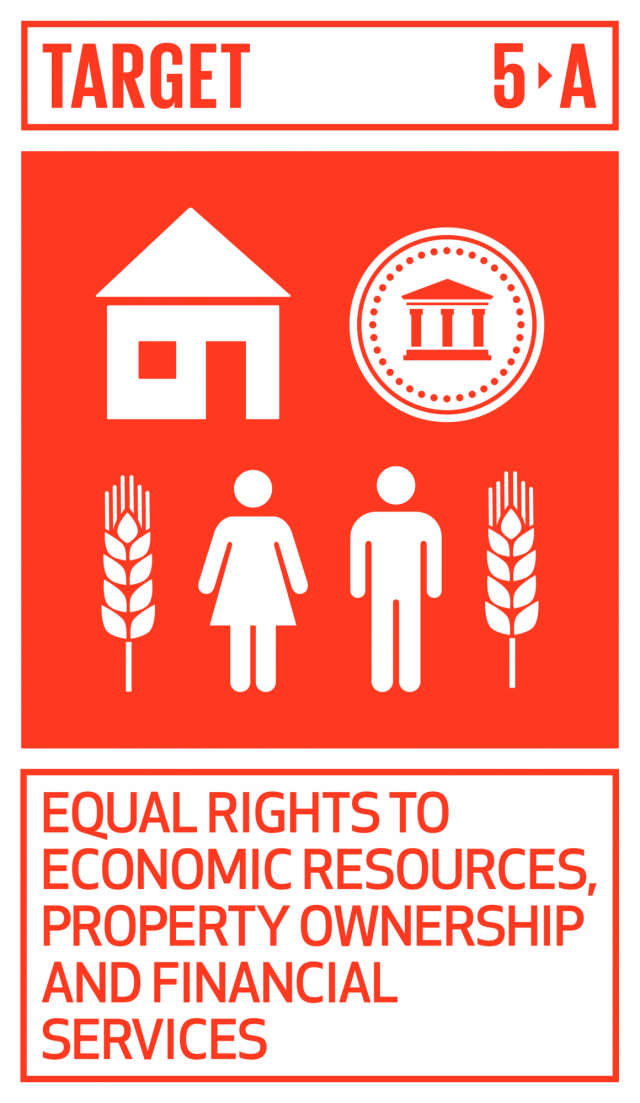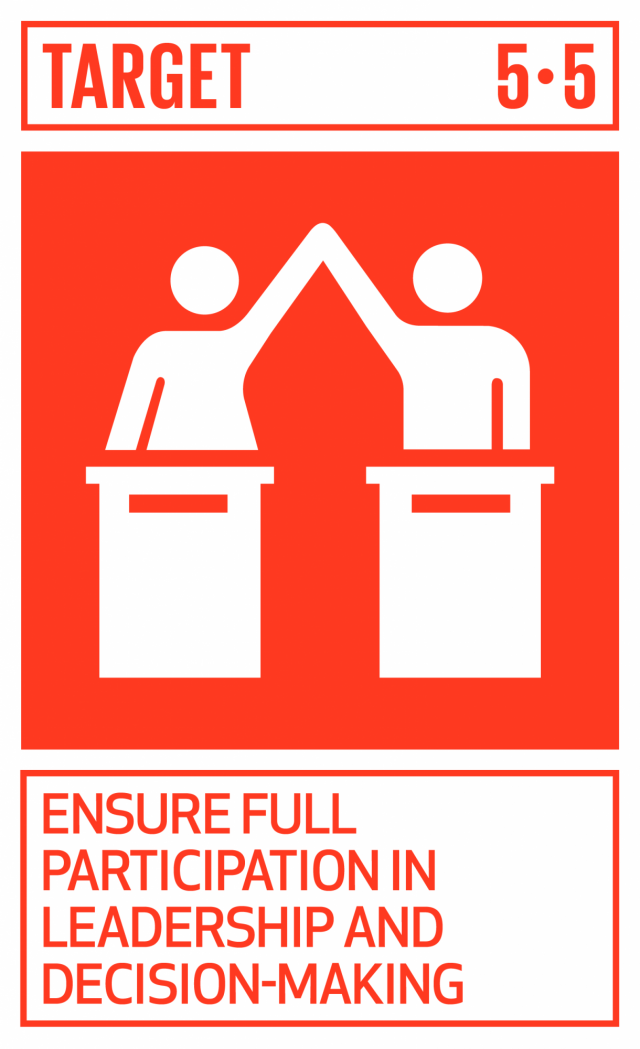SDG 5 - Gender equality
“There is no longer male and female; for all of you are one in Christ Jesus.”
(Galatians 3, 28)
On this page...
About this goal
Gender equality and the empowerment of all women and girls is one of the Sustainable Development Goals and an essential aspect of “leaving no one behind”, in keeping with the overall theme of the United Nations’ 2030 Agenda for Sustainable Development. Each of the 17 goals depends on the achievement of SDG5 - Gender Equality, in their endeavour to address the major challenges of the 21st century: poverty, inequality and violence.
The UN has set nine targets in order to achieve this goal. Each target has several indicators that measure progress in reaching the goal.
The targets are focused on eliminating the root causes for discrimination against women and girls in private and public spheres. Among the key priorities are the elimination of harmful practices (target 5.3) and of violence against women (target 5.2) which are some of the most pervasive human rights violations in the world today. Target 5.4 calls for recognizing the value of domestic work and unpaid care done mainly by women worldwide. This fundamental contribution to families and to society and the economy must be acknowledged. Sharing responsibility for domestic work between women and men and the provision for, and strengthening of, social protection policies for women are central to the achievement of fair and balanced societies.
SDG 5 names the importance of ensuring access to information and services related to sexual and reproductive health, and to reproductive rights. This vital aspect of life relates to other targets, including the right to health and education and to the protection from harmful practices, such as child, early and forced marriage and female genital mutilation.
The following targets for SDG 5 are closely connected to current or potential activities by churches and church-related organizations:






Why does this goal matter to the church?
The Christian understanding that God's grace changes people and that God transforms the Church by the power of the Holy Spirit to love and serve the neighbour includes Christian service to foster gender justice.
A church which proclaims hope is a church called to ensure that the good news that in our baptism into Christ: “There is no longer male and female... for all of you are one in Christ Jesus” (Galatians 3:28) becomes a reality within church structures and within society at large.
Faith communities that aspire to be just, merciful, and compassionate are called to love their neighbors through promoting and protecting the full participation of women, equal opportunities for leadership, and the elimination of all forms of discrimination and violence included in the SDG 5 targets.
“Because gender relationships too are subject to God’s transforming power, they can be renewed to become just and equitable.”
(LWF Gender Justice Policy)
The concrete ways of transforming relationships between women and men to achieve gender equality which are named in the targets for SDG5 point to ways for churches to participate.
Where do we find inspiration?
Three basic principles present in Christian tradition invite and inspire churches to build gender relations based on equity and justice.
Principle 1: Relationships grounded in dignity
The belief that women and men and have been created in the image of God (Genesis 1: 26-27) sets the basis for human dignity regardless of biological, cultural, social or political considerations. Human beings are created for close relationship with God and with each other. Everything in human culture that places human beings in a position of disadvantage with respect to others because of their gender adversely affects their dignity and is in opposition to God’s desire that all human beings see each other as beings with dignity, created in God’s image and likeness.
Principle 2: Equality through baptism
The good news in the baptismal formula of the early church proclaims the reordering of power relationships with equality between, and among, human beings: (Galatians 3: 23-28).The principle of equality that emerges from the scriptural witness allows us to critically evaluate patterns of social and cultural behaviour which discriminate on the basis of gender.
The roots of gender discrimination are transmitted through cultural and religious tradition and practice. In proclaiming God’s love for all through the good news of Jesus Christ, churches can play a crucial role in questioning and transforming the cultural and/or religious traditions, perceptions and practices that justify discrimination of women and girls and deprive them of their dignity, rights, and well-being.
Principle 3: To do justice
Justice is fundamental to the biblical understanding of people of faith. “What does the Lord require of you but to do justice, love kindness and walk humbly with our God.” (Micah 6:8)
Biblical prophecy bears witness to God’s call to overcome all forms of human oppression over others; to respond in faith means to act in justice, to transform unjust relationships and structures. Discrimination based on gender refers to the objective realities that place women and girls at a disadvantage and in a position of vulnerability in relation to men, in the economic, political, social, religious and cultural realms.
Just relationships are a fundamental expression of gender justice that churches are called to uplift and proclaim.

